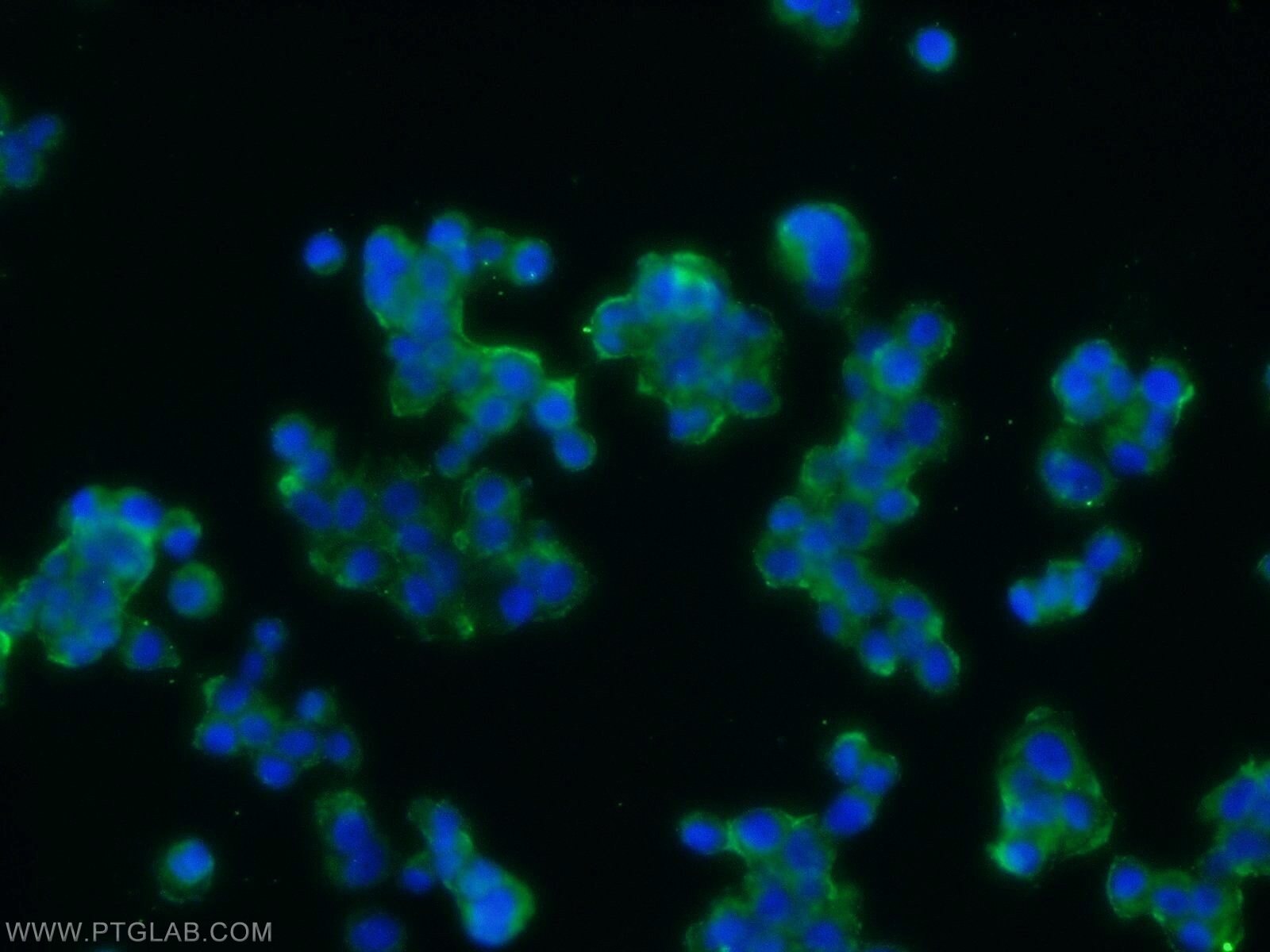- Phare
- Validé par KD/KO
Anticorps Polyclonal de lapin anti-ARRDC3
ARRDC3 Polyclonal Antibody for WB, IF, ELISA
Hôte / Isotype
Lapin / IgG
Réactivité testée
Humain
Applications
WB, IF, ELISA
Conjugaison
Non conjugué
N° de cat : 25060-1-AP
Synonymes
Galerie de données de validation
Applications testées
| Résultats positifs en IF/ICC | cellules PC-12 |
Dilution recommandée
| Application | Dilution |
|---|---|
| Immunofluorescence (IF)/ICC | IF/ICC : 1:10-1:100 |
| It is recommended that this reagent should be titrated in each testing system to obtain optimal results. | |
| Sample-dependent, check data in validation data gallery | |
Applications publiées
| KD/KO | See 1 publications below |
| WB | See 1 publications below |
Informations sur le produit
25060-1-AP cible ARRDC3 dans les applications de WB, IF, ELISA et montre une réactivité avec des échantillons Humain
| Réactivité | Humain |
| Réactivité citée | Humain |
| Hôte / Isotype | Lapin / IgG |
| Clonalité | Polyclonal |
| Type | Anticorps |
| Immunogène | ARRDC3 Protéine recombinante Ag18717 |
| Nom complet | arrestin domain containing 3 |
| Masse moléculaire calculée | 414 aa, 46 kDa |
| Poids moléculaire observé | 46 kDa |
| Numéro d’acquisition GenBank | BC053619 |
| Symbole du gène | ARRDC3 |
| Identification du gène (NCBI) | 57561 |
| Conjugaison | Non conjugué |
| Forme | Liquide |
| Méthode de purification | Purification par affinité contre l'antigène |
| Tampon de stockage | PBS avec azoture de sodium à 0,02 % et glycérol à 50 % pH 7,3 |
| Conditions de stockage | Stocker à -20°C. Stable pendant un an après l'expédition. L'aliquotage n'est pas nécessaire pour le stockage à -20oC Les 20ul contiennent 0,1% de BSA. |
Protocole
| Product Specific Protocols | |
|---|---|
| WB protocol for ARRDC3 antibody 25060-1-AP | Download protocol |
| IF protocol for ARRDC3 antibody 25060-1-AP | Download protocol |
| Standard Protocols | |
|---|---|
| Click here to view our Standard Protocols |
Publications
| Species | Application | Title |
|---|---|---|
Biochem Biophys Res Commun Androgen receptor regulated microRNA miR-182-5p promotes prostate cancer progression by targeting the ARRDC3/ITGB4 pathway.
|


